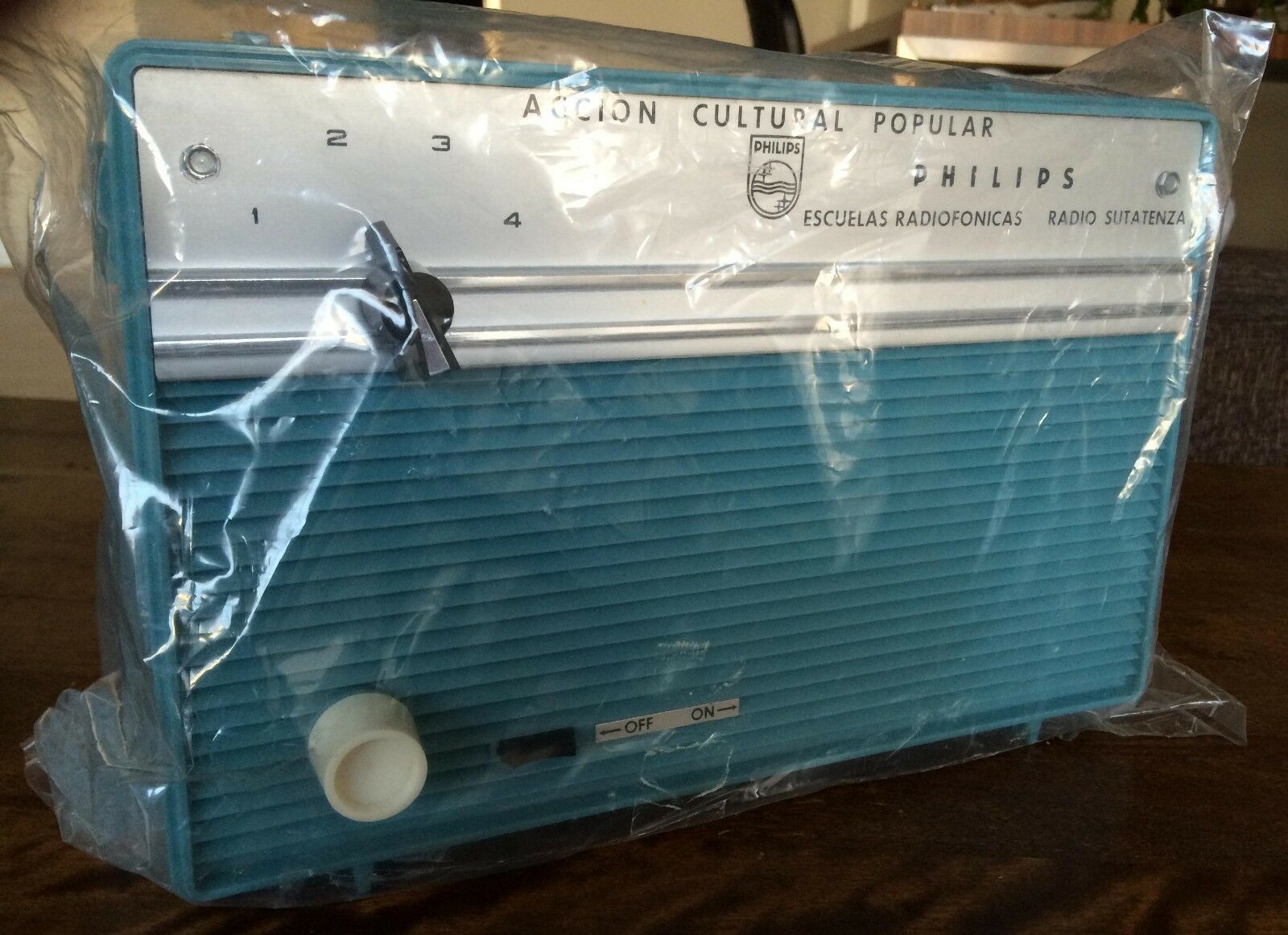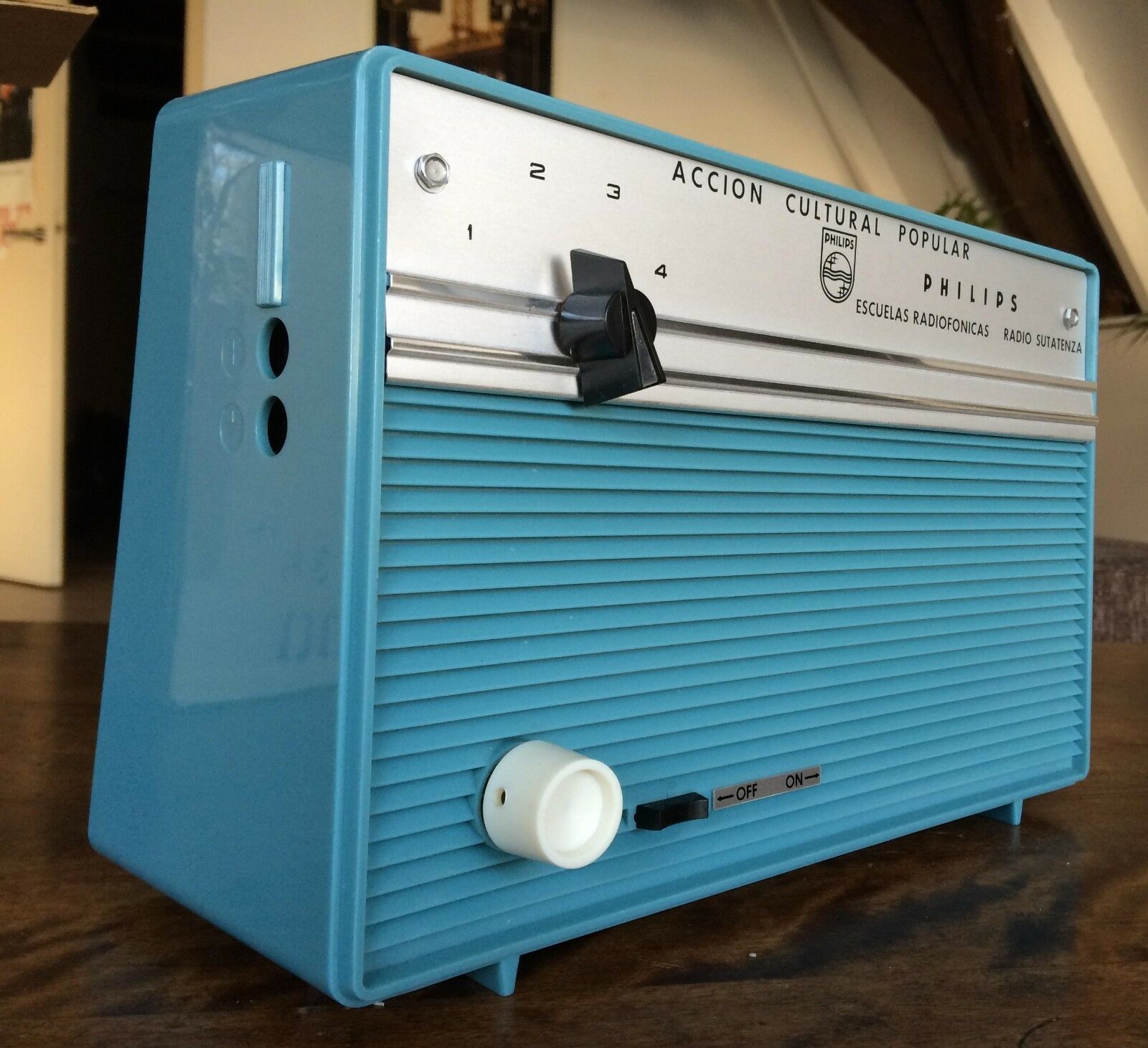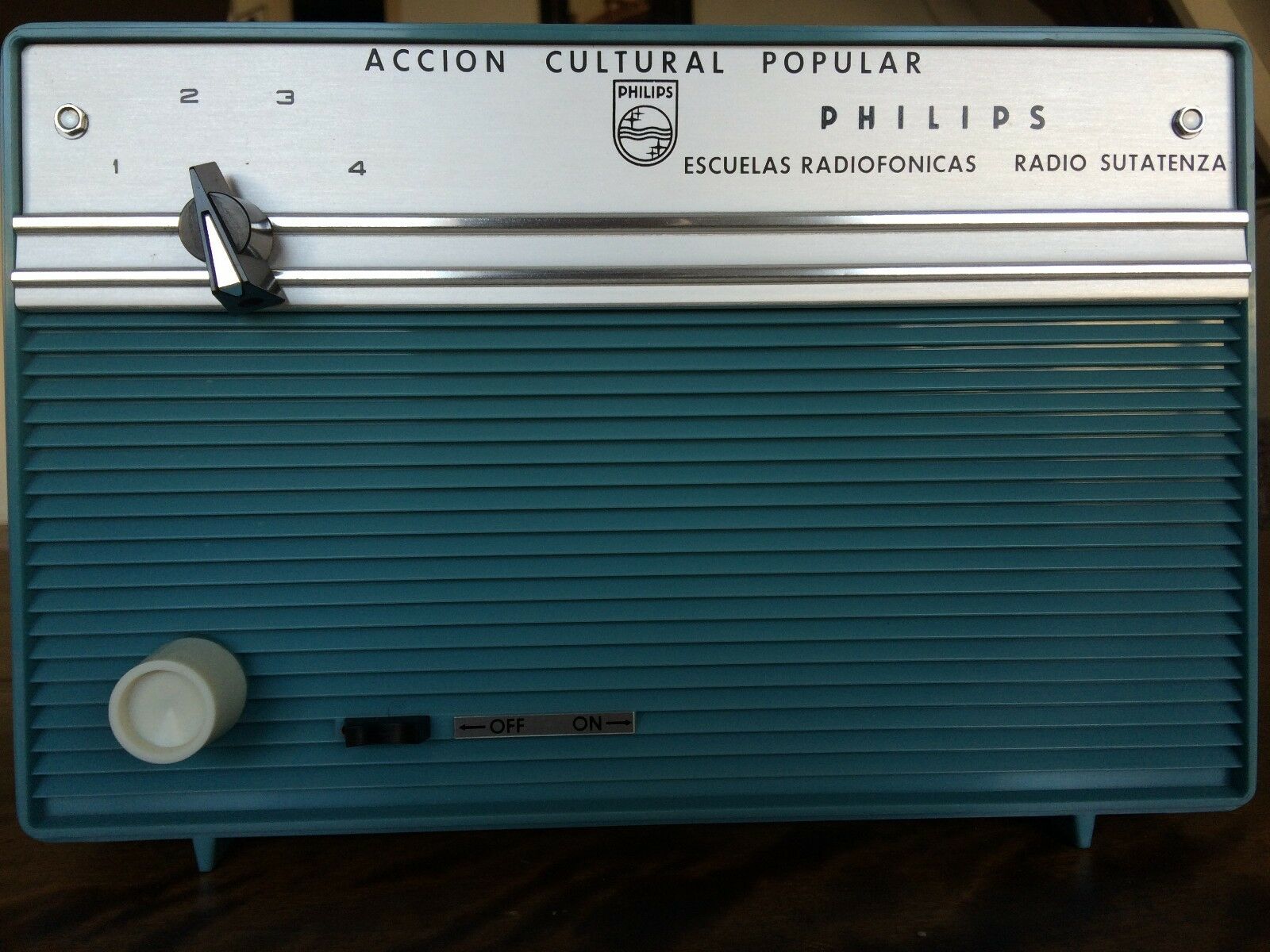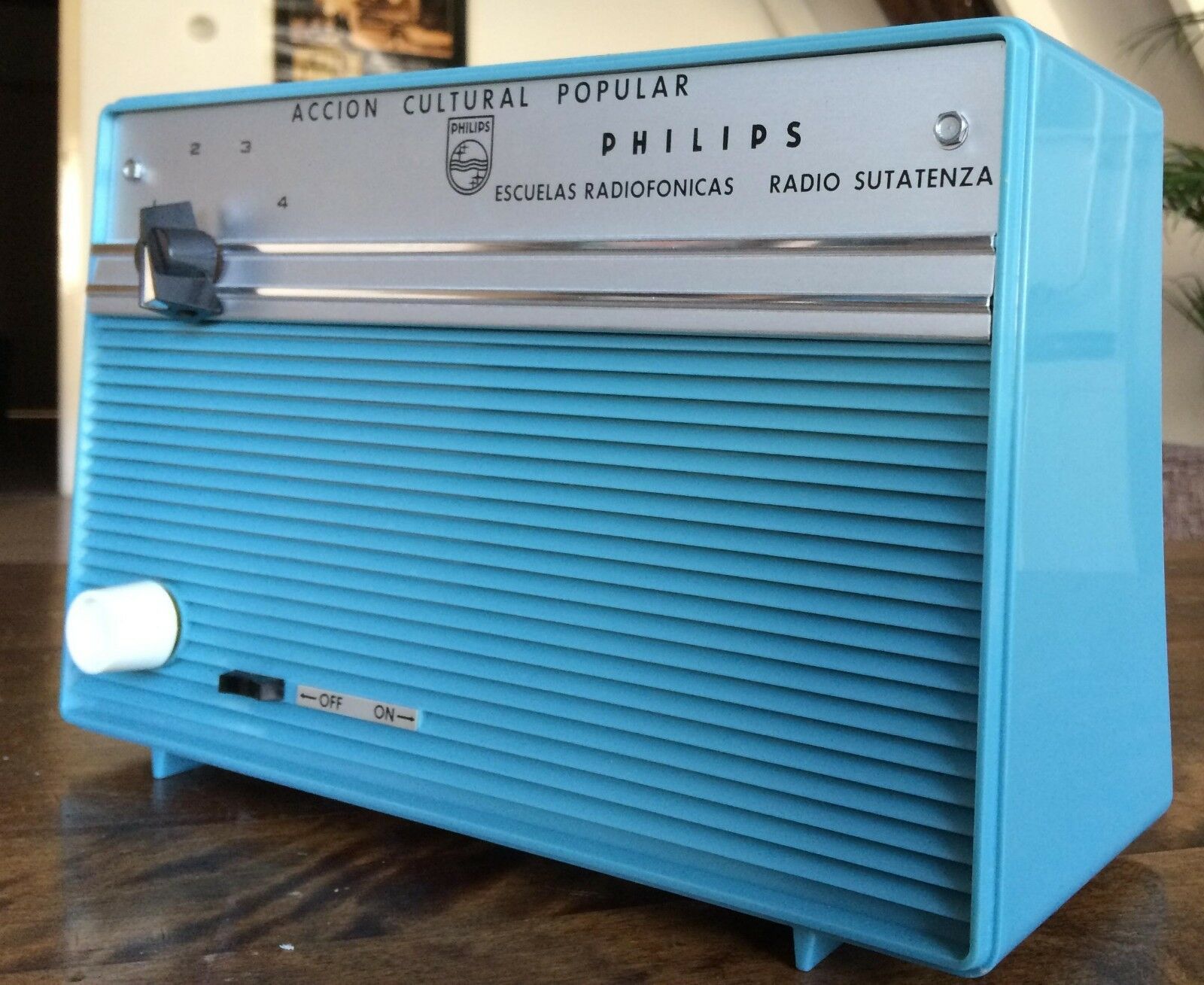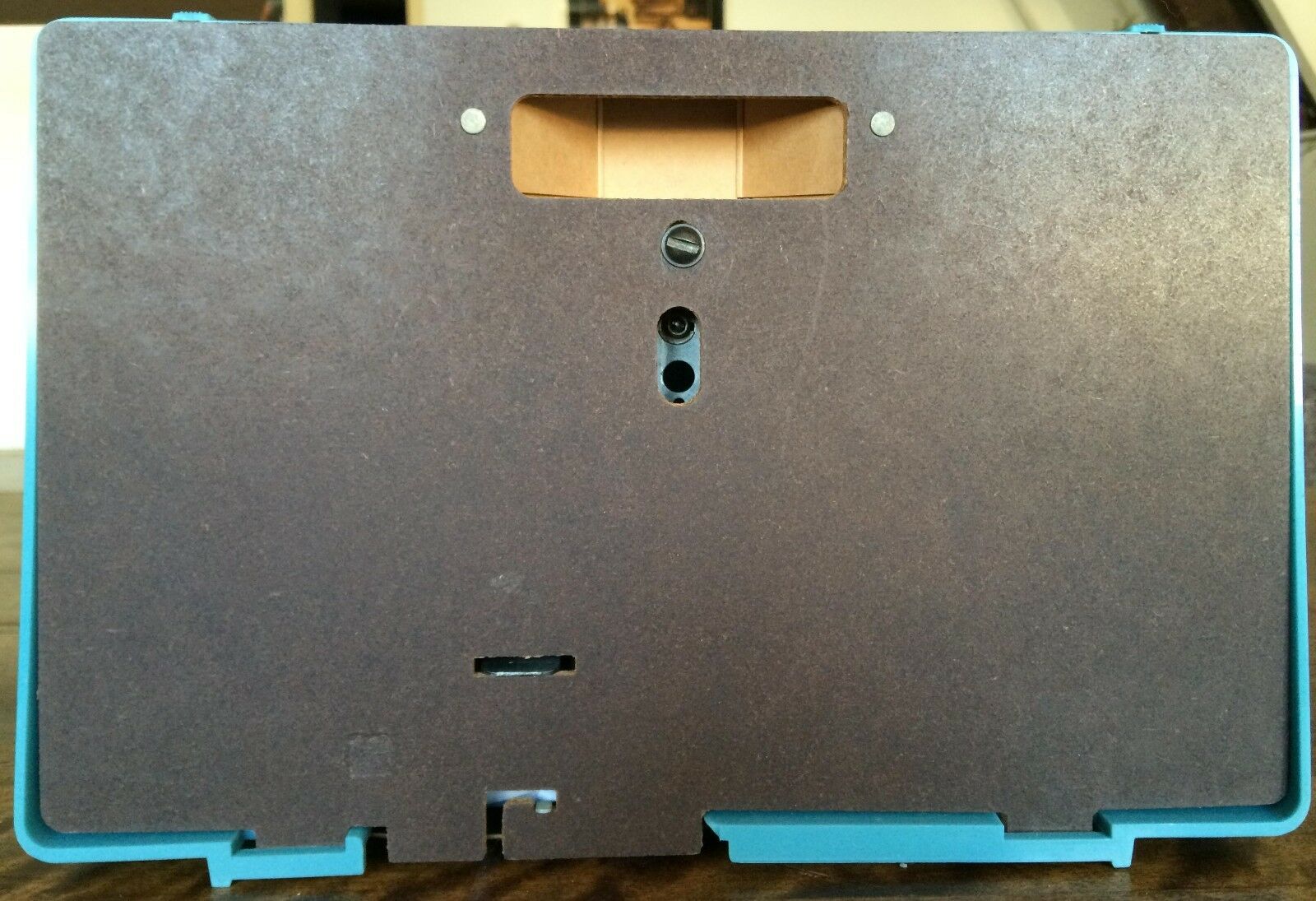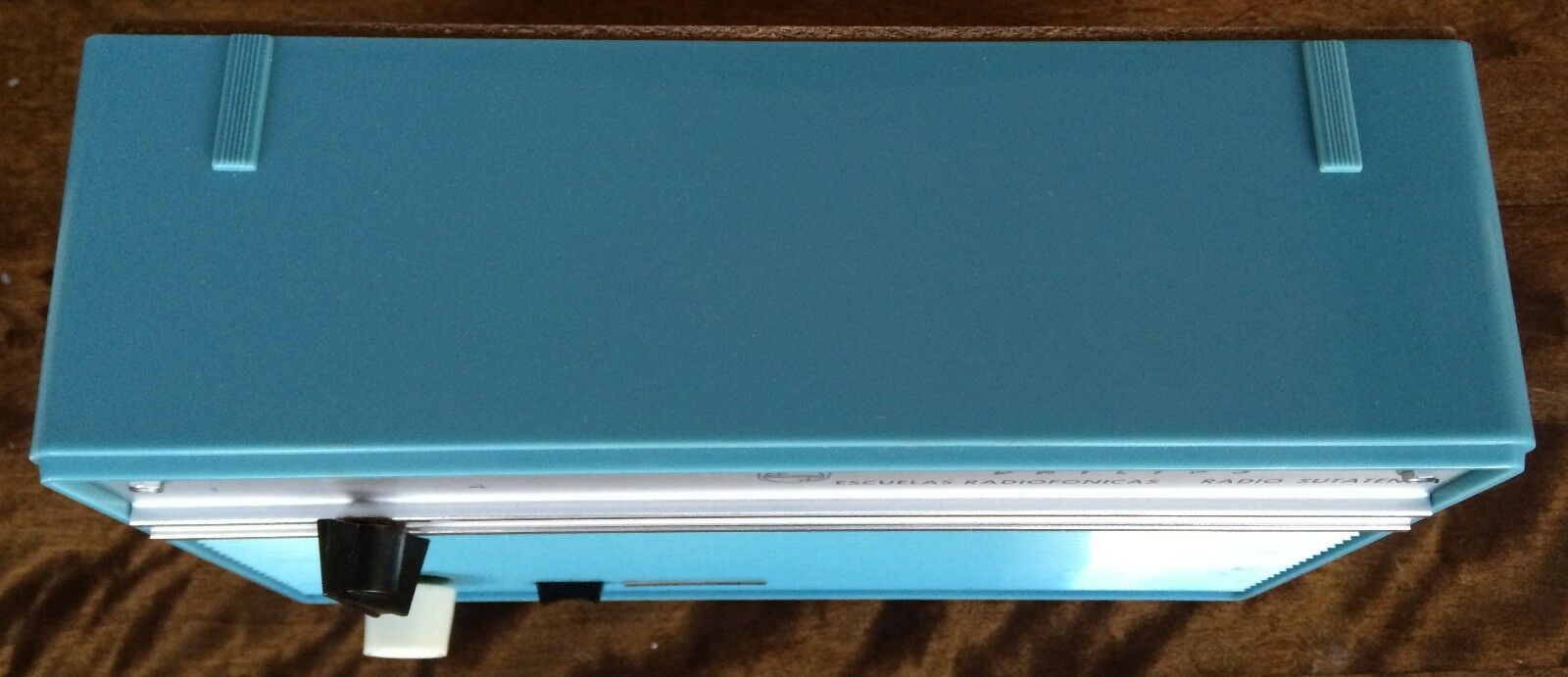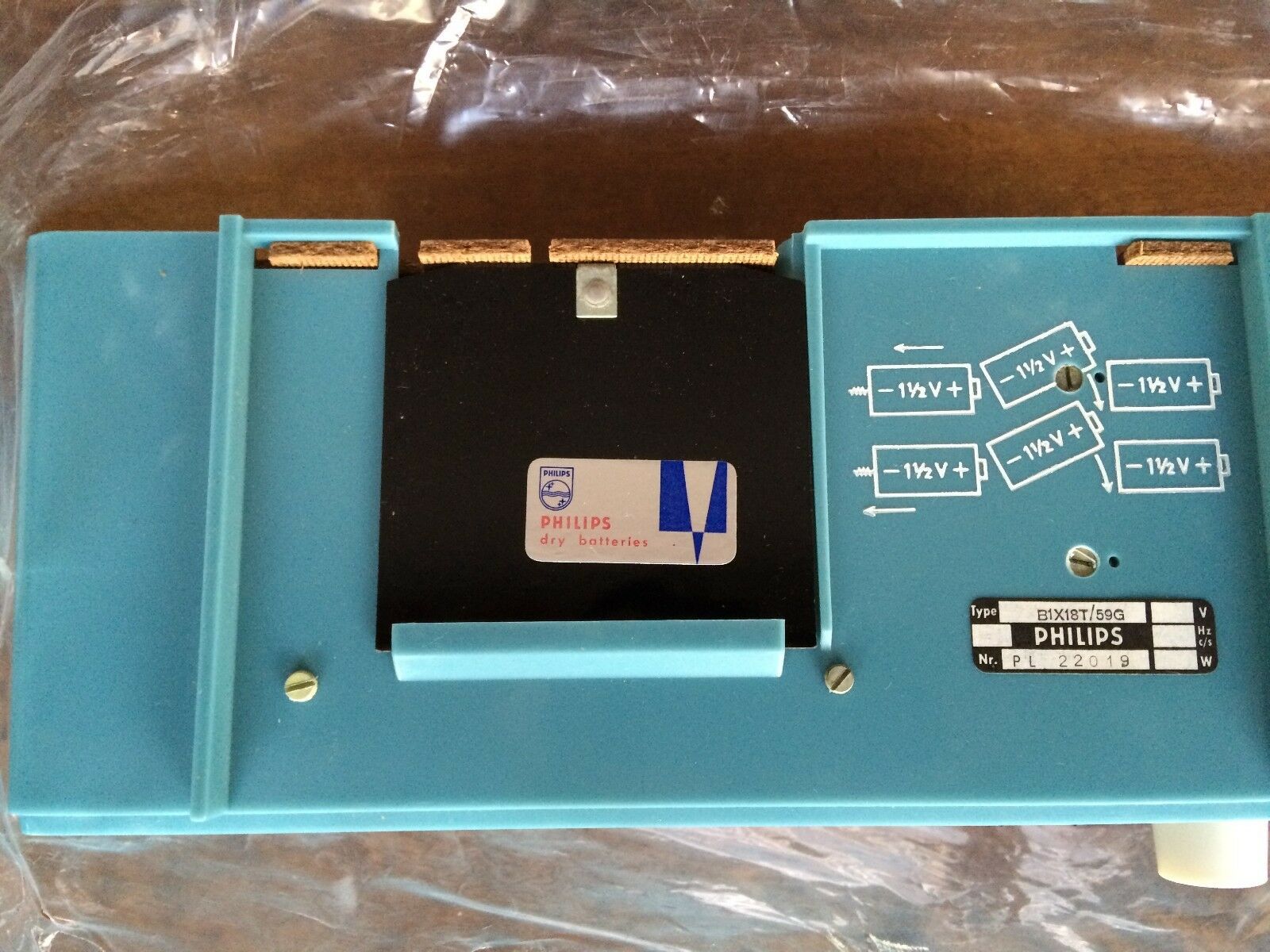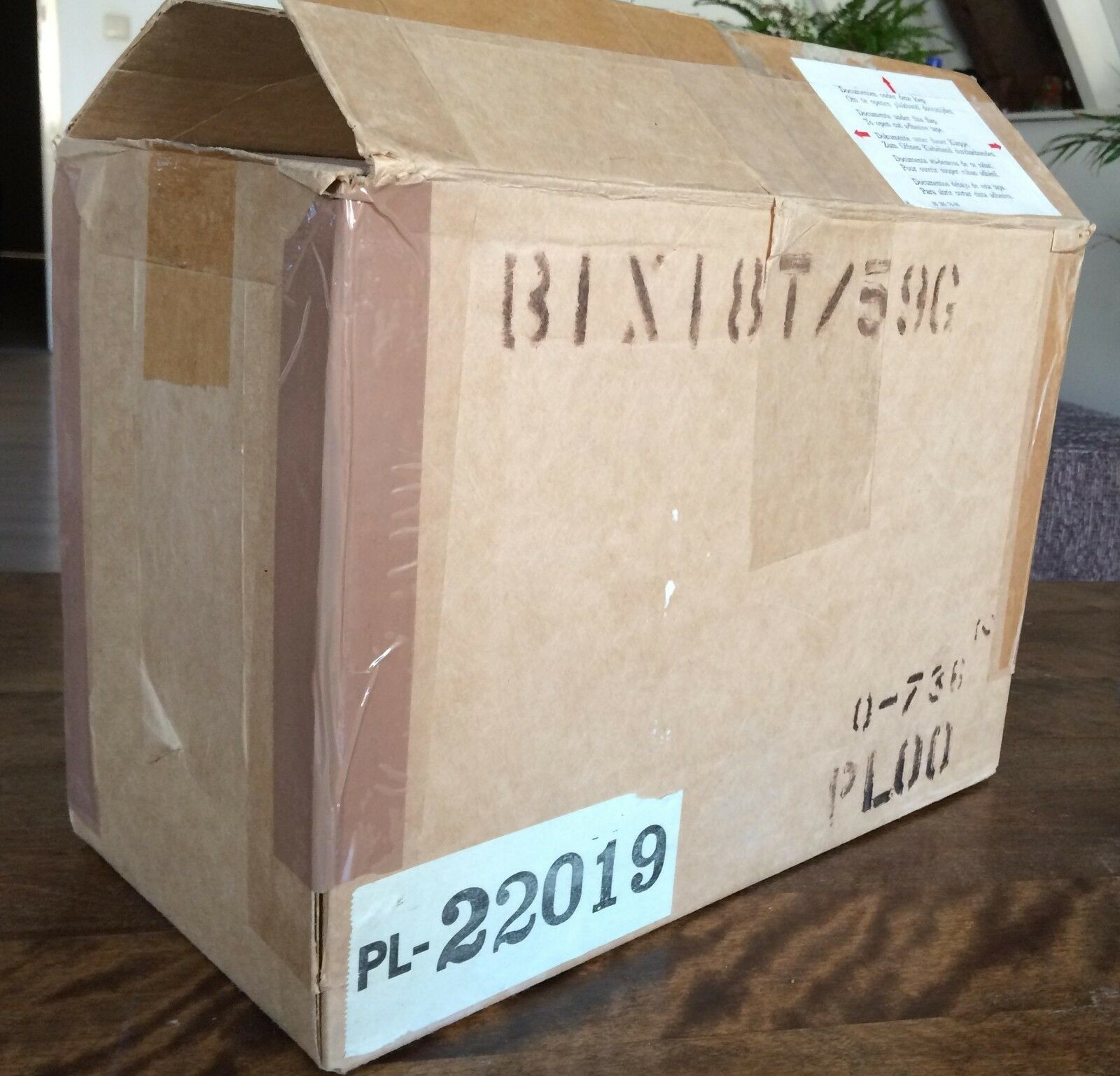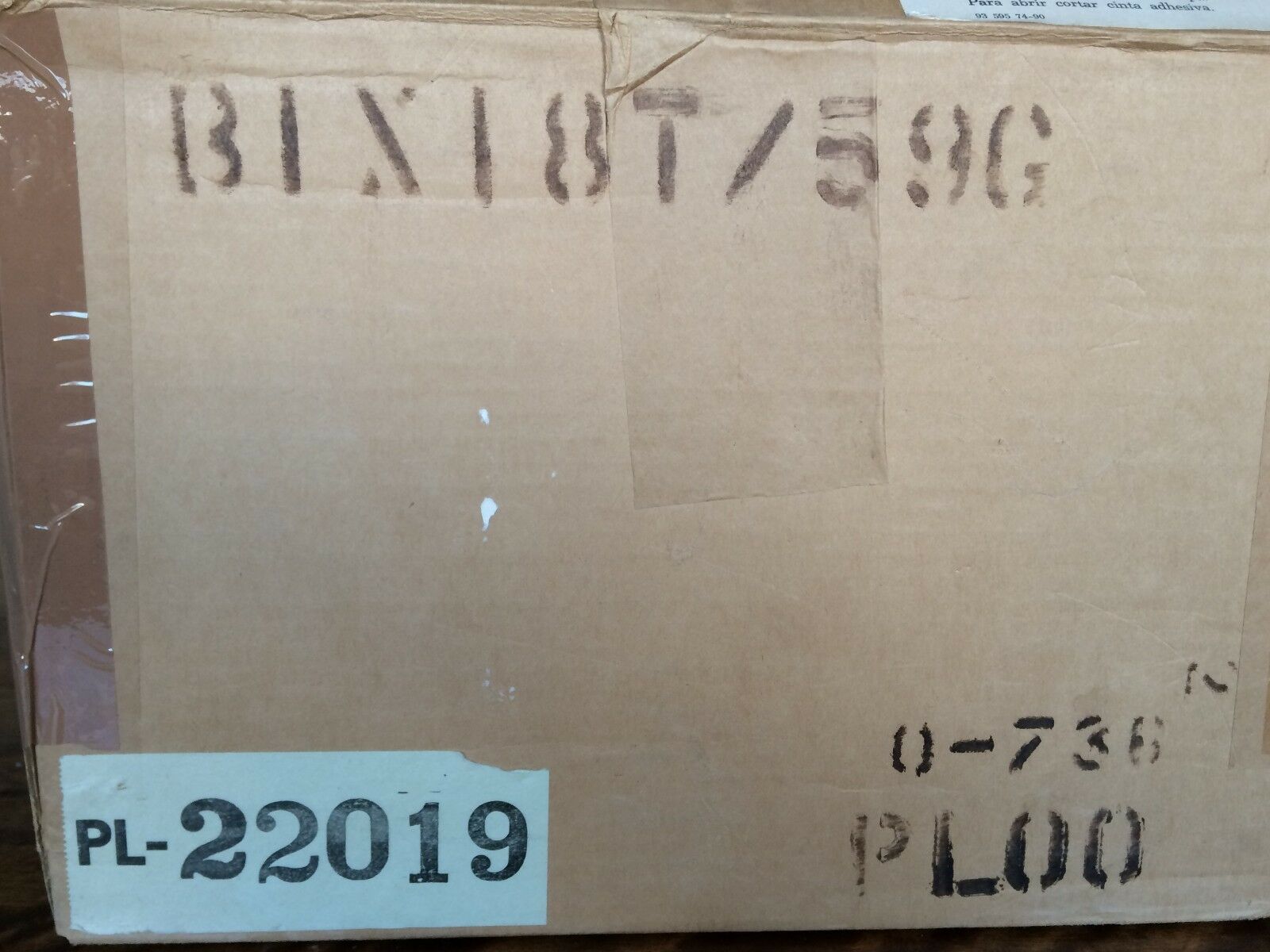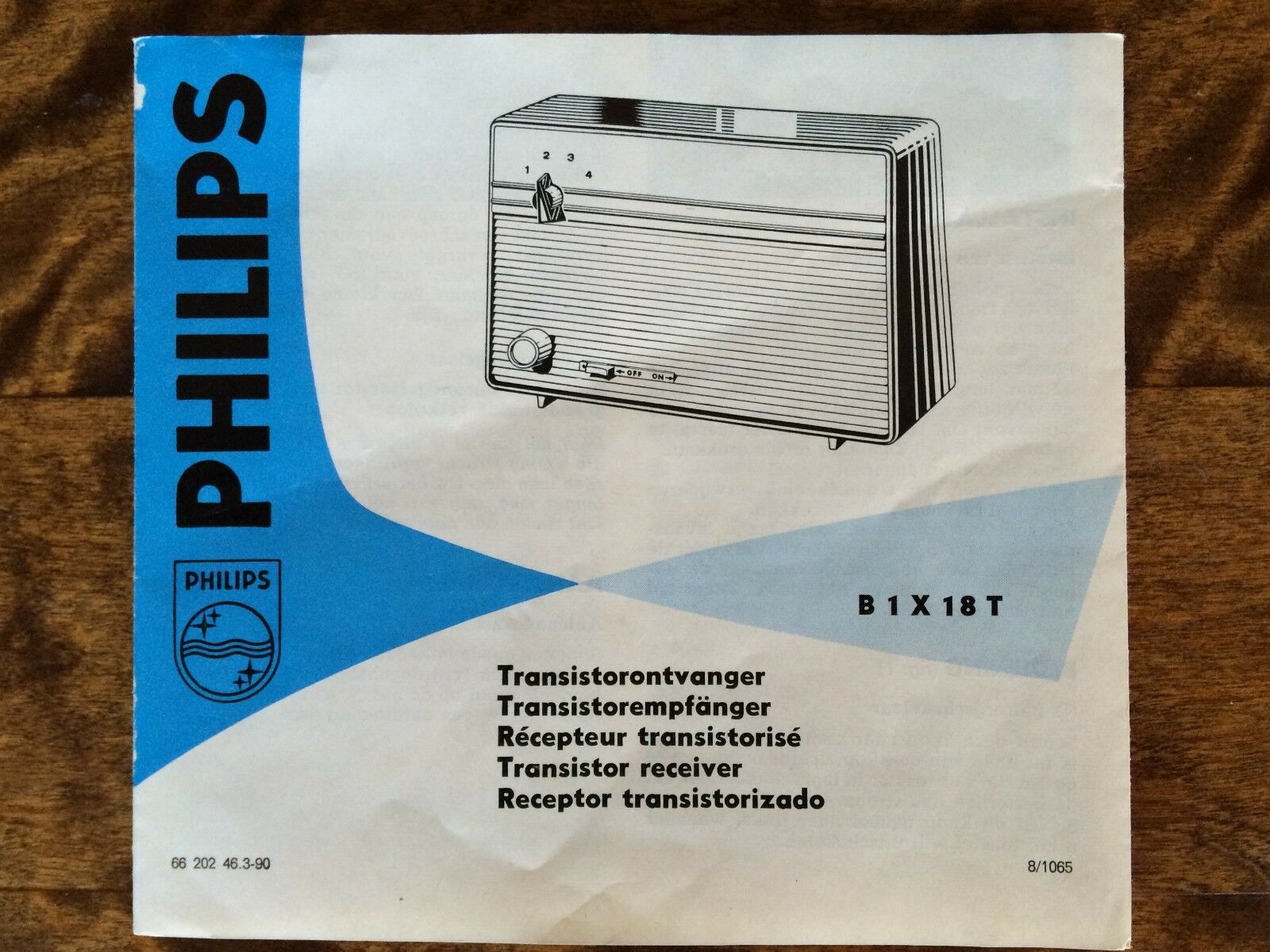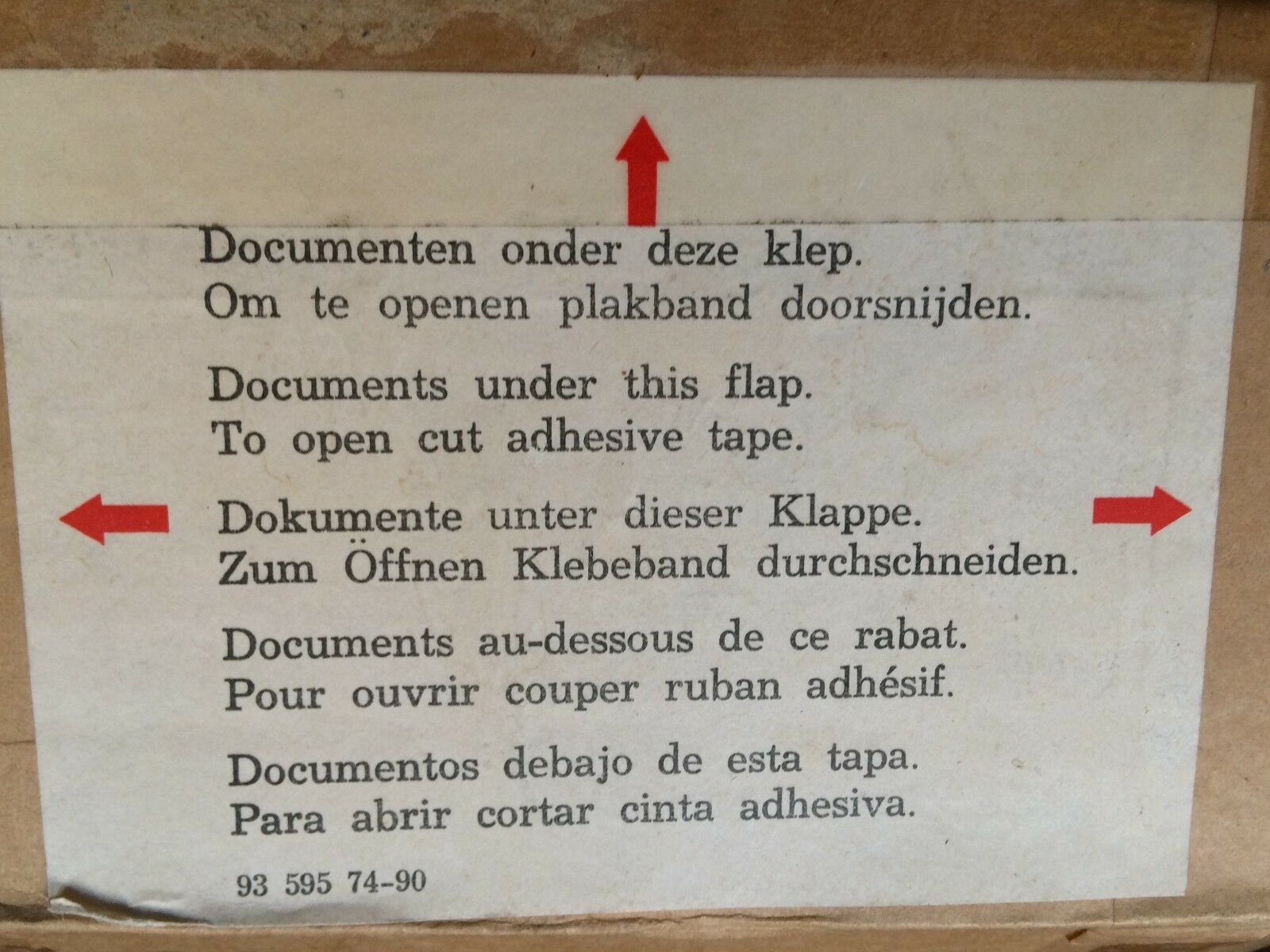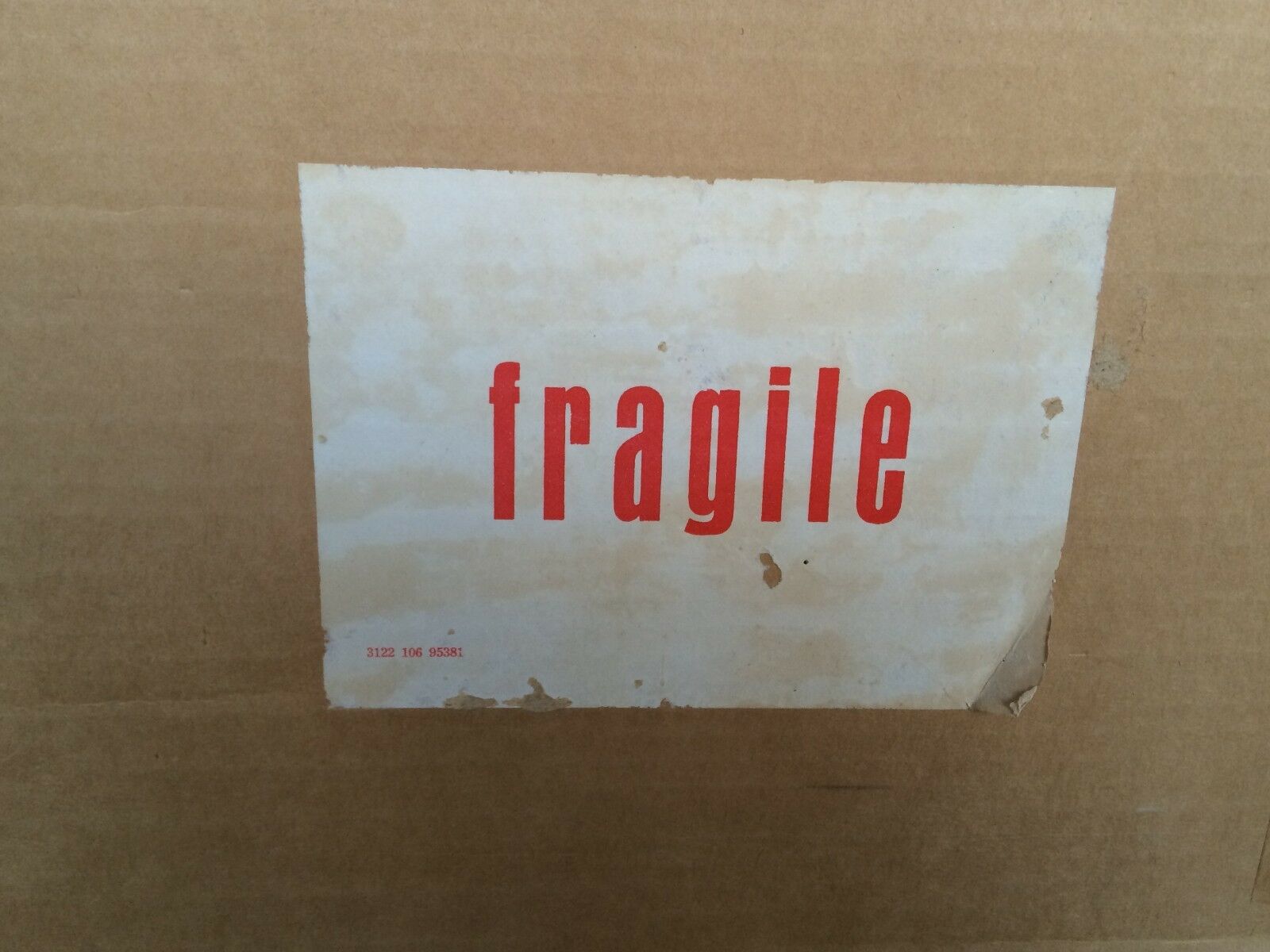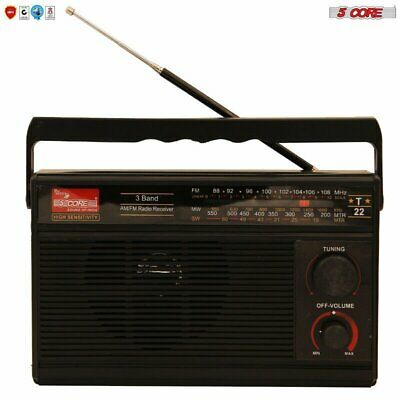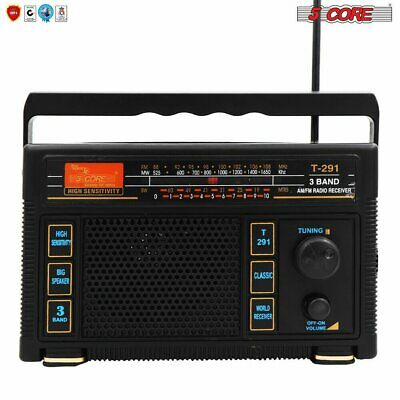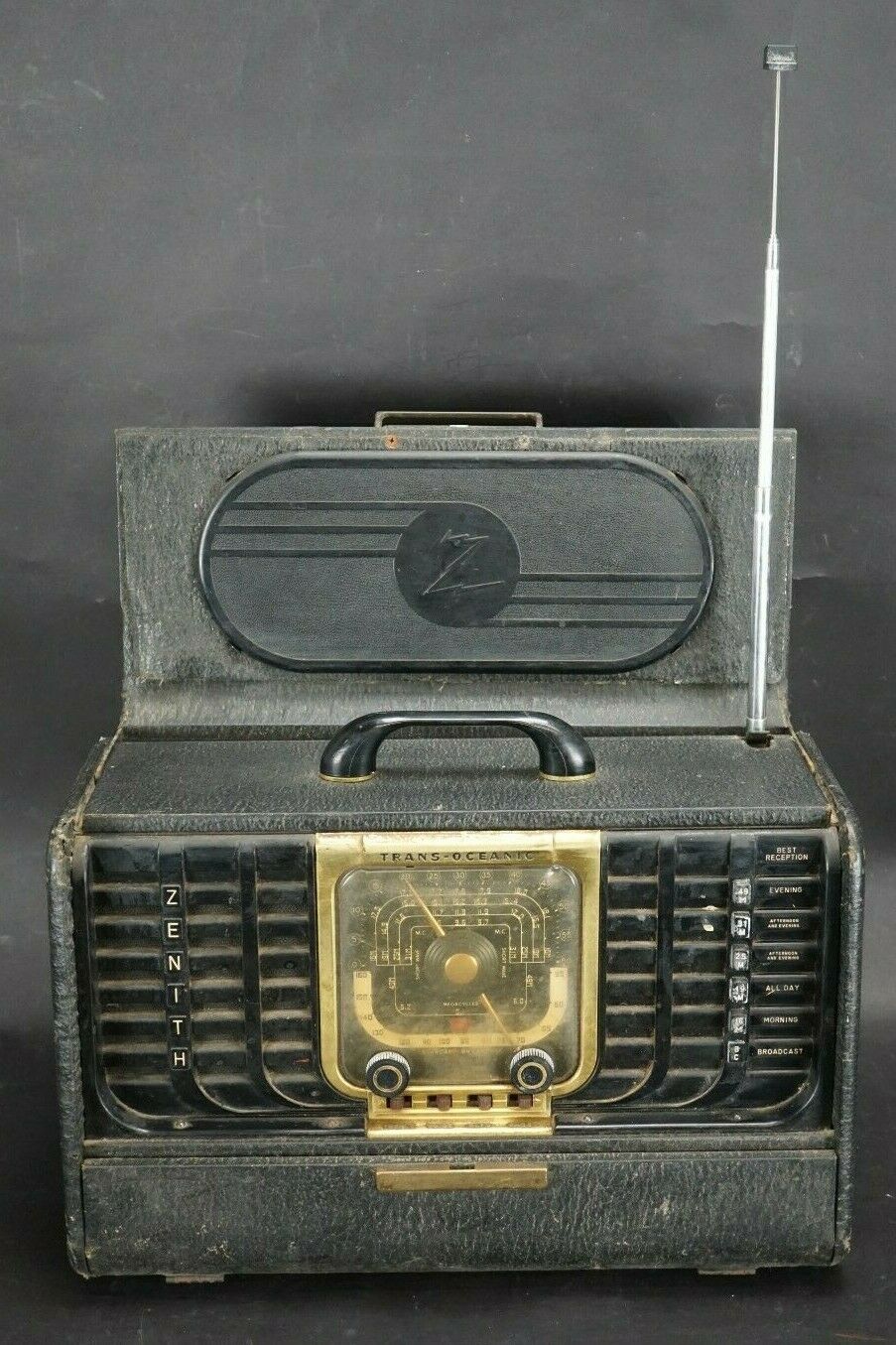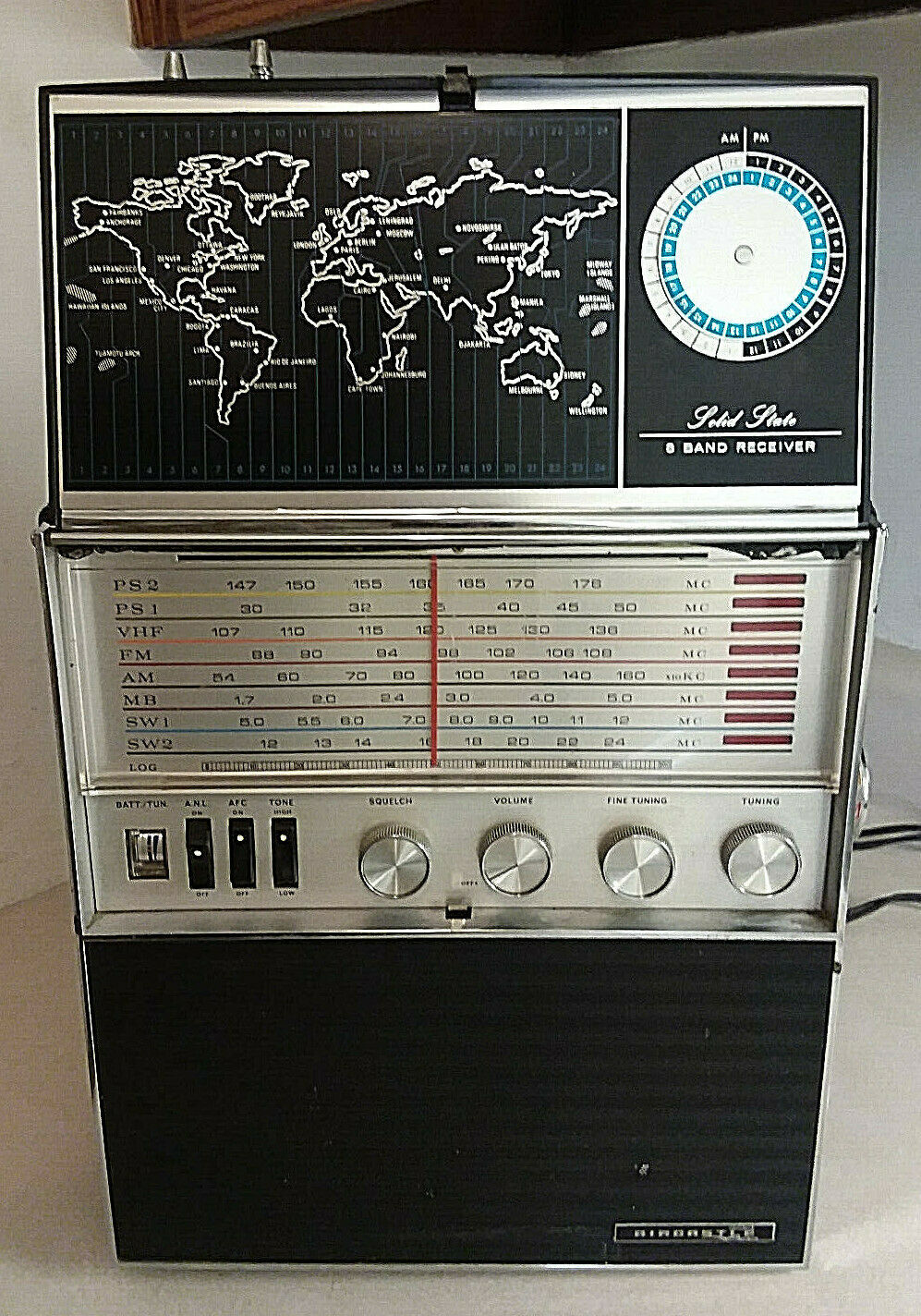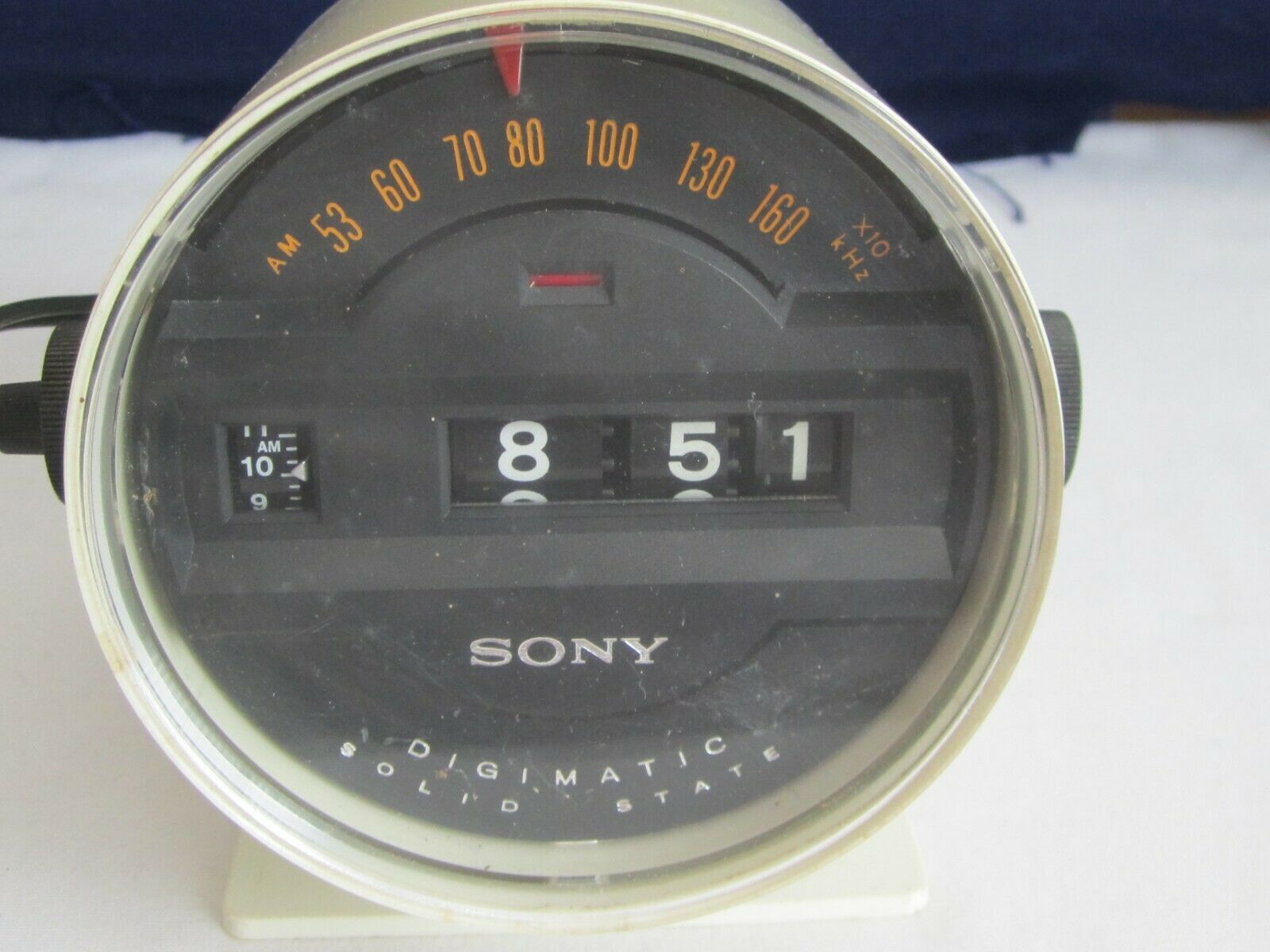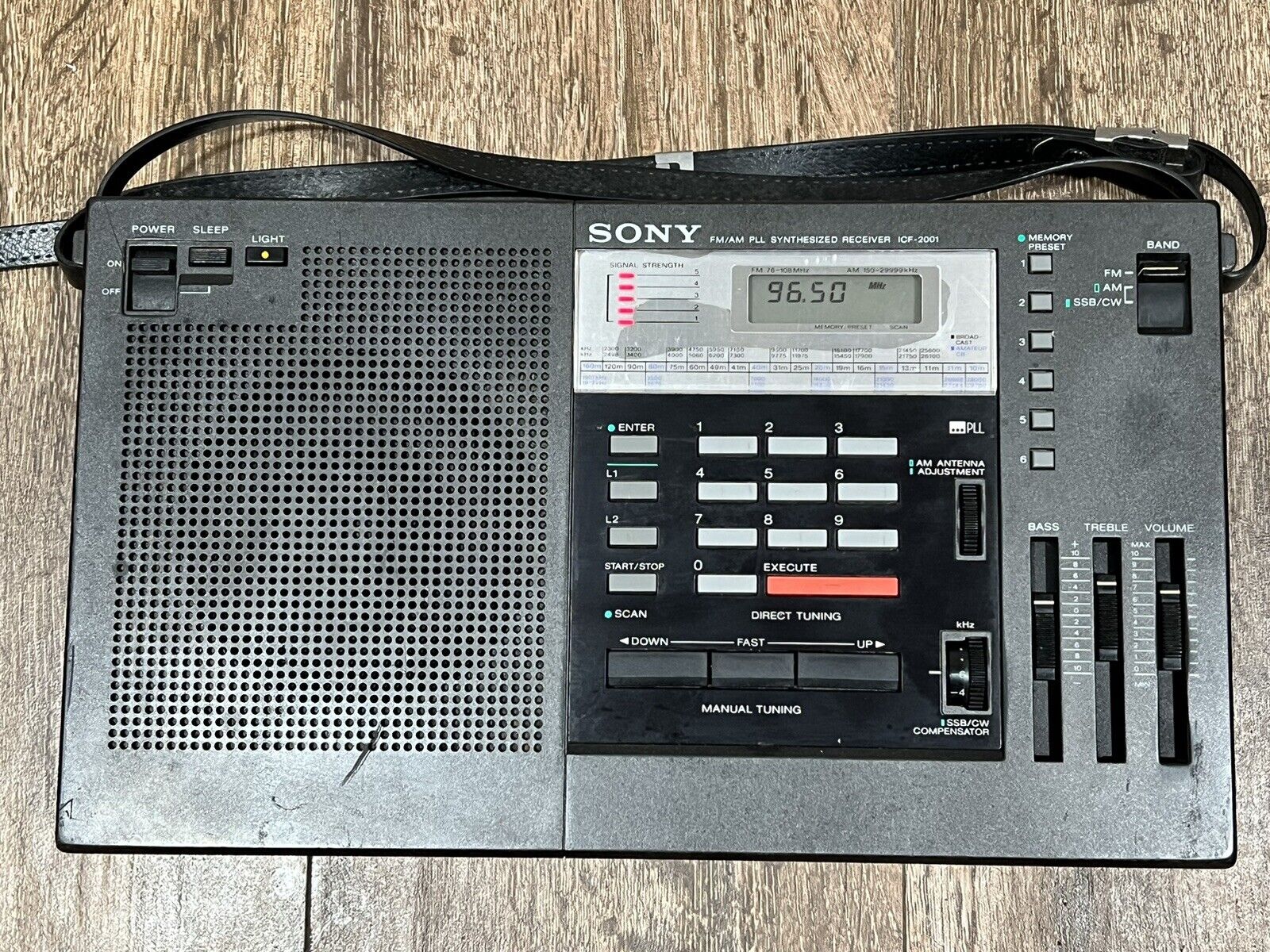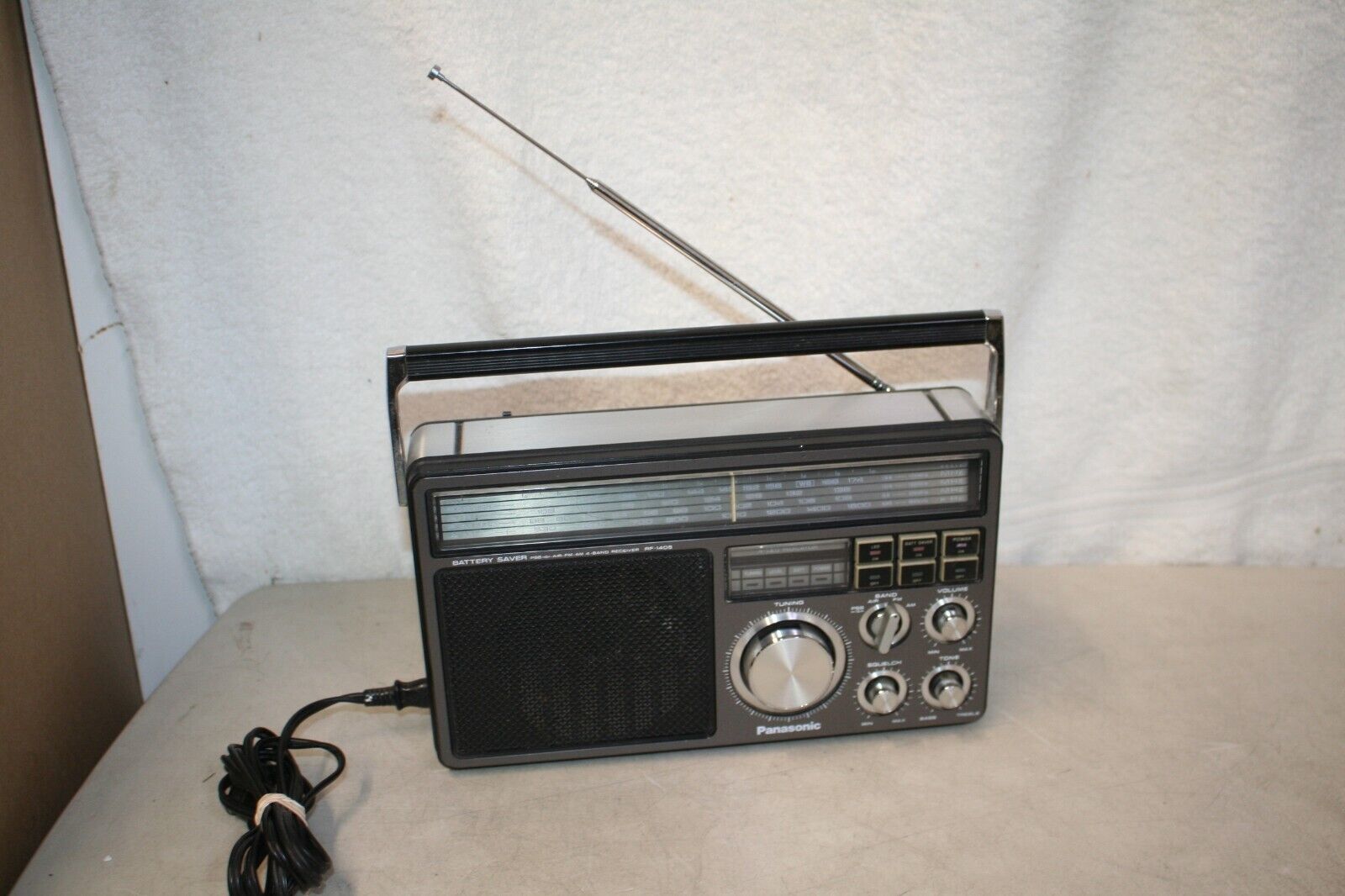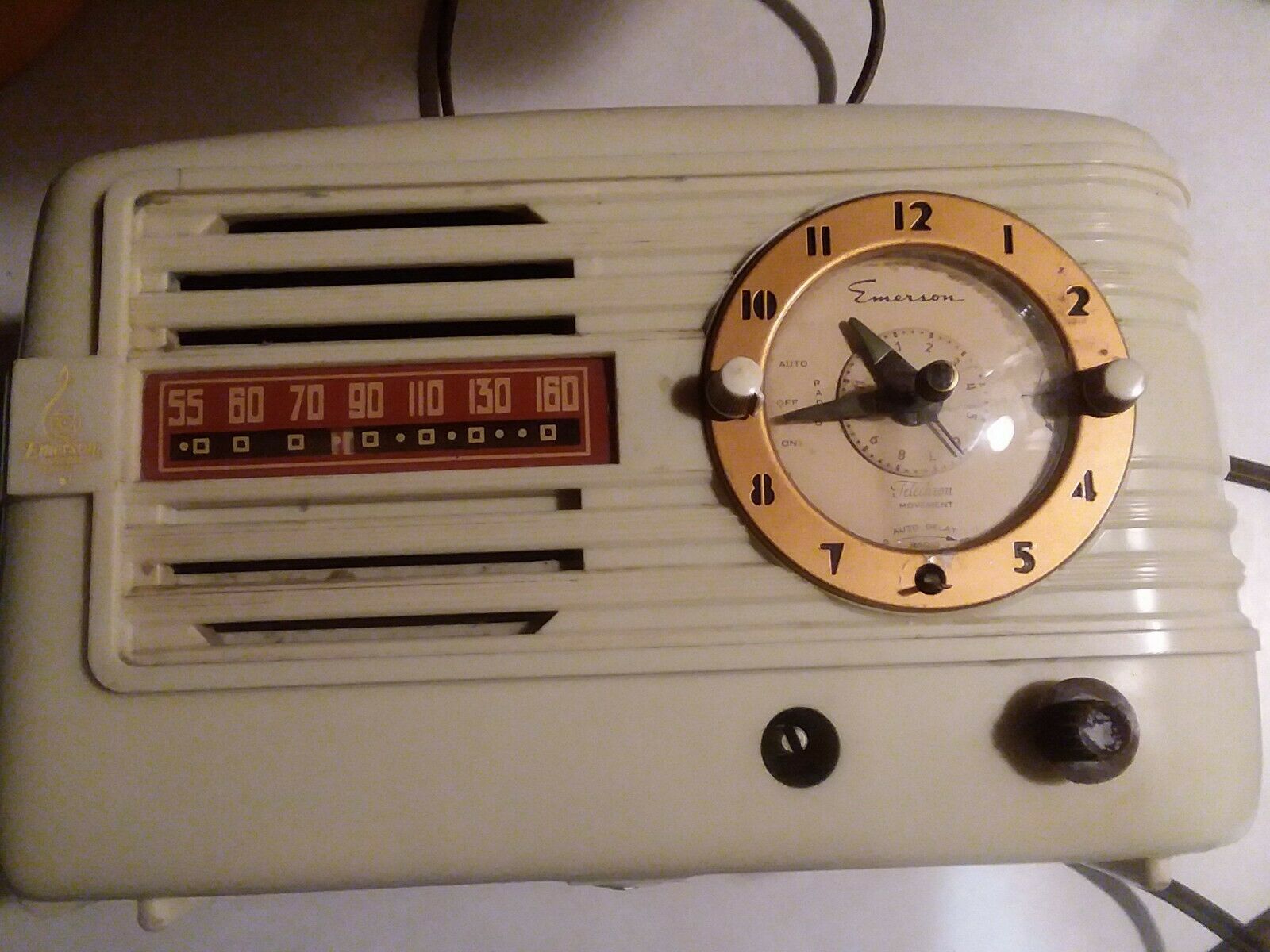-40%
PHILIPS Vintage Retro Rockabilly 1962 Sutatenza B1X18T/59G Radio Table top (NOS)
$ 171.6
- Description
- Size Guide
Description
Track Page Views WithAuctiva's FREE Counter
Data for Philips B1X18T/59G
Production
The Netherlands, 1962.
Bands
Four fixed frequencies.
Semi-
conductors
3x AF117, AC126, OA79, 2xOutput.
Cabinet
Plastic, blue. Size 29x18x11 cm. Weight 1.3 kg (w/o batt).
Power
Batt 6xD.
Documents
User manual.
The Design
In the early sixties Philips produced these radios at the request of Sutatenza Radio School in Bogota, Colombia.
The design is special in a few ways. First because it is a transistorized table top, which was not very common yet in 1961. Then, there is no tuning knob but a four position switch. Three positions receive fixed
frequencies in the 60m Band (around 5100kHz), position 4 gives a fixed MW station. Inside the switch rotates a carousel with three crystals and coils (photo). The switch position for channel 4 (Medium Wave) actually is between the other positions rather than at the 4 on the panel.
The radio came with a brief instruction in five languages (Dutch, English, French, German, Spanish) which is a little bit peculiar in light of the fact that the radio could be used only in a single country (Colombia).
Radio Sutatenza
Switch
Crystal
Rec. freq.
mirror
1
5527
5075
5980
2
5547
5095
6000
3
5623
6075
5170
The Sutatenza Radio School was established in 1948 by Monsignor Jose Joaquin Salcedo and is one of the oldest radio schools in South America. One of their transmitters was a 120kW station ot 700kc, located in the City of Cali. Short wave frequencies were 5075, 5095 and 6075 kc, and these three frequencies are received by the radio. Observe that the Local Oscillator swings at 452kc below or above the received frequency. In the early nineties Sutatenza closed down after educating the Columbian people for over 40 years. The equipment and frequency came in use by Cardena Radio Colombial, or Caracol for short. Caracol is a commercial radio operator.
This Object
Radios produced in Eindhoven were carefully packed in plastic and cardboard boxes and then sent all over the world to bring joy and education to people regardless of their race or religion. All of them? No, a small number was not sent away but put in storage in the Philips deposits near Eindhoven. The box of this radio was not opened until March 25, 2001, when I bought it.
Due to the rarity, history and condition of this radio, this radio belongs either in a museum or in an avid radio collector's showcase.
